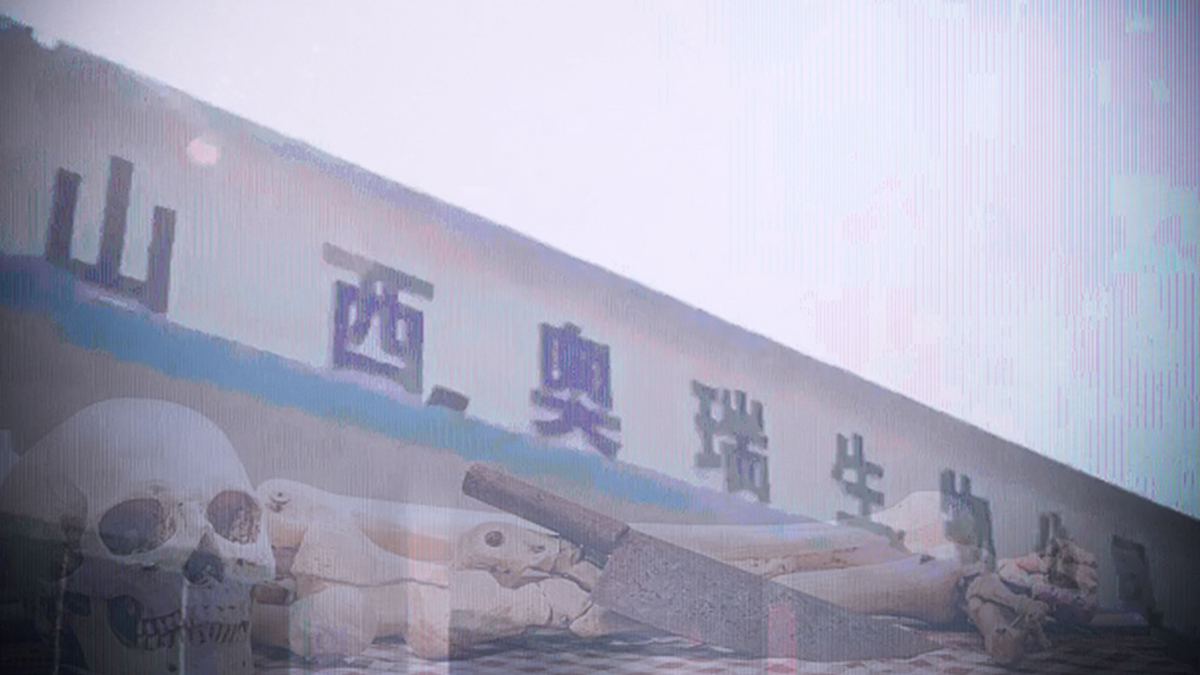
Chinese Biomaterial Firm Accused of Illegally Trading Thousands of Cadavers in Eight-Year Scandal
A leaked court document has revealed a shocking scheme in which a Chinese biomaterial firm, Shanxi Osteorad Biomaterial Co., allegedly engaged in the illegal trade of thousands of stolen cadavers over an eight-year period. The document, which details a wide-ranging investigation, accuses the company of acquiring over 4,300 human cadavers from funeral homes, a transplant center, and a medical university to manufacture bone grafting materials.
The alleged activities took place between January 2015 and July 2023. Shanxi Osteorad, formerly a state-owned company, and its affiliated firm, Sichuan Hengpu Technology Limited, supplied allogeneic bone implantable materials to hospitals across 13 provinces and cities in China, according to the document.
The leaked prosecution document, dated May 23, was first made public on August 8 by Yi Shenghua, a Beijing-based lawyer with a substantial following on Chinese social media platform Weibo. Yi, who is not directly involved in the case, reportedly obtained the document from a source familiar with the matter. The document has since sparked widespread outrage and concern over the ethical practices within China’s medical industry.
The Allegations Unveiled
The court document alleges that Shanxi Osteorad illegally obtained cadavers from various sources, including funeral homes, by forging donor registration forms and quality control documents. Police reportedly seized over 18 metric tons of raw and semi-finished materials and 34,077 units of finished products from the companies involved.
Shanxi Osteorad, founded in 1999 by the state-owned China Institute for Radiation Protection, has been at the center of the scandal. One of the company’s two shareholders, Su Chengzhong, is accused of setting up Sichuan Hengpu in 2014 and using it to source cadavers through illicit means. The company reportedly gained control of four funeral homes in three provinces through investment, subcontracts, or infiltration, acquiring the bodies of over 4,000 deceased individuals.
Instead of incinerating the bodies as required, the funeral homes allegedly sold them to Sichuan Hengpu at a rate of 2,000 yuan ($280) per body, or 2,500 yuan ($349) if bones were extracted. The cadavers were then either dismembered at the funeral homes or at Sichuan Hengpu’s facilities, with more than 1,000 cadavers eventually sold to Shanxi Osteorad.
Widespread Involvement
The scandal extends beyond funeral homes. The document also implicates a dissection lab at Guilin Medical University, which allegedly purchased 450 cadavers from three other funeral homes, fully aware that most of them were stolen. The lab reportedly paid bribes to funeral home personnel, acquiring the cadavers for 900 yuan ($126) each. Researcher Lan Lingyuan, with the written approval of lab director Tian Shunliang, allegedly oversaw the preparation and sale of over 300 cadavers to Shanxi Osteorad at a price of 10,000 yuan ($1,395) per cadaver.
Additionally, a transplant center at The Affiliated Hospital of Qingdao University is implicated in the scheme. Dr. Li Zhiqiang, a physician at the hospital, is accused of selling around a dozen cadavers to Shanxi Osteorad between 2015 and 2021, with prices ranging from 10,000 yuan ($1,395) to 22,000 yuan ($3,070). The document does not specify the source of these cadavers, raising further questions about the nature of the deaths and why the bodies were unclaimed by families.
A Disturbing Pattern
U.S.-based China commentator Tang Jingyuan expressed deep concern over the revelations, suggesting that the case may indicate a well-established system of cadaver trade in China, possibly backed by the Chinese Communist Party. “This is something very strange. In theory, even if the cadavers were from organ donors, Li doesn’t have the right to decide what to do with them—they belong to the families,” Tang told NTD News. “What’s more, Li dismembered the bodies, froze body parts, and sold them illegally and in secret. Both the bodies and their death were suspicious. How did they die? Why were there no families to claim the bodies?” Tang asked.
The court document also accuses Shanxi Osteorad’s management of orchestrating a cover-up, with company head Li Baoxing allegedly instructing senior managers to forge consent forms and quality control reports. Most of the company’s staff are said to have been involved in forging signatures of donors’ families to legitimize the illicit trade.
A Suppressed Story
Since Yi Shenghua’s initial post on Weibo, the story has gained traction across various Chinese media outlets, but many of these reports, along with several of Yi’s Weibo posts, have since been removed or are no longer visible.
The use of allogeneic grafts—bone grafting materials derived from human donors—remains prevalent in China. According to a 2018 report by Chinese synthetic medical material firm Allgens Medical, more than two-thirds of bone grafting in China utilized natural material, with 90 percent sourced from humans.
The revelations of this scandal have raised significant concerns about the ethical standards in China’s medical and biomaterial industries, as well as the potential complicity of state authorities in such illegal practices. The full extent of the scandal and its impact on the industry remains to be seen.
- Madhes Province Holds Vast Development Potential: Prime Minister Oli
- Man Arrested for Using Forged Document to Exploit Community Forest in Achham
- Health Minister Paudel Highlights Nepal’s Progress and Challenges at UN Health Commission Session
- Nidhi Calls on Party Cadres to Strengthen Nepali Congress Organization













Comments